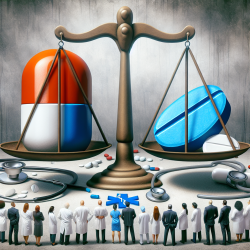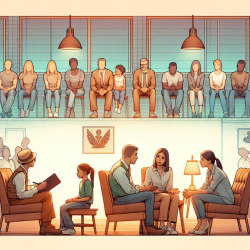The war on drugs has long been a controversial topic in the United States, with far-reaching effects beyond the criminal justice system. As healthcare practitioners, understanding how these policies impact social determinants of health (SDOH) is crucial for improving patient care and advocating for systemic change.
The Intersection of Drug Policies and Social Determinants of Health
The war on drugs has deeply embedded itself into various systems that affect key SDOH such as employment, housing, education, and access to public benefits. These policies often exacerbate existing disparities, particularly affecting low-income communities and people of color.
Employment Challenges
Employment is a vital determinant of health, providing income, health insurance, and social connections. However, drug testing and criminal background checks create significant barriers to employment for individuals with drug-related convictions. These barriers disproportionately affect Black men and contribute to economic inequality.
- Action Step: Advocate for policies that eliminate or restrict workplace drug testing and criminal background checks to improve employment opportunities.
Housing Instability
The Anti-Drug Abuse Act of 1988 initiated drug war surveillance in housing by allowing evictions based on drug-related activities. This has led to increased homelessness and housing instability, which are linked to numerous negative health outcomes.
- Action Step: Support housing policies that remove bans based solely on drug-related activities and invest in Housing First programs.
Educational Barriers
Punitive responses to drug use in educational settings can lead to increased dropout rates and reduced access to higher education. This limits economic mobility and contributes to poorer long-term health outcomes.
- Action Step: Advocate for supportive educational policies that focus on counseling rather than punishment for students who use drugs.
Lack of Access to Public Benefits
The Personal Responsibility and Work Opportunity Reconciliation Act of 1996 introduced lifetime bans on SNAP and TANF benefits for individuals with felony drug convictions. This exacerbates food insecurity and economic instability.
- Action Step: Work towards removing bans on public benefits for individuals with drug convictions and eliminating mandatory drug testing requirements.
The Role of Healthcare Practitioners
The healthcare system often perpetuates the punitive logic of the war on drugs through practices like mandatory reporting and drug testing. These practices can deter individuals from seeking necessary medical care due to fear of legal repercussions or family separation.
- Action Step: Educate yourself about the implications of drug testing and reporting requirements. Advocate for patient-centered care that respects privacy and autonomy.
- Action Step: Engage in policy advocacy to reform healthcare practices that align with a public health approach rather than punitive measures.
A Call to Action
The war on drugs has deeply affected multiple facets of life in the U.S., undermining key SDOH and leading to poorer health outcomes. As healthcare practitioners, you have a unique opportunity to advocate for change both within your practice and at a policy level. By understanding the impact of these policies, you can better support your patients and work towards systemic changes that promote health equity.
How the war on drugs impacts social determinants of health beyond the criminal legal system










